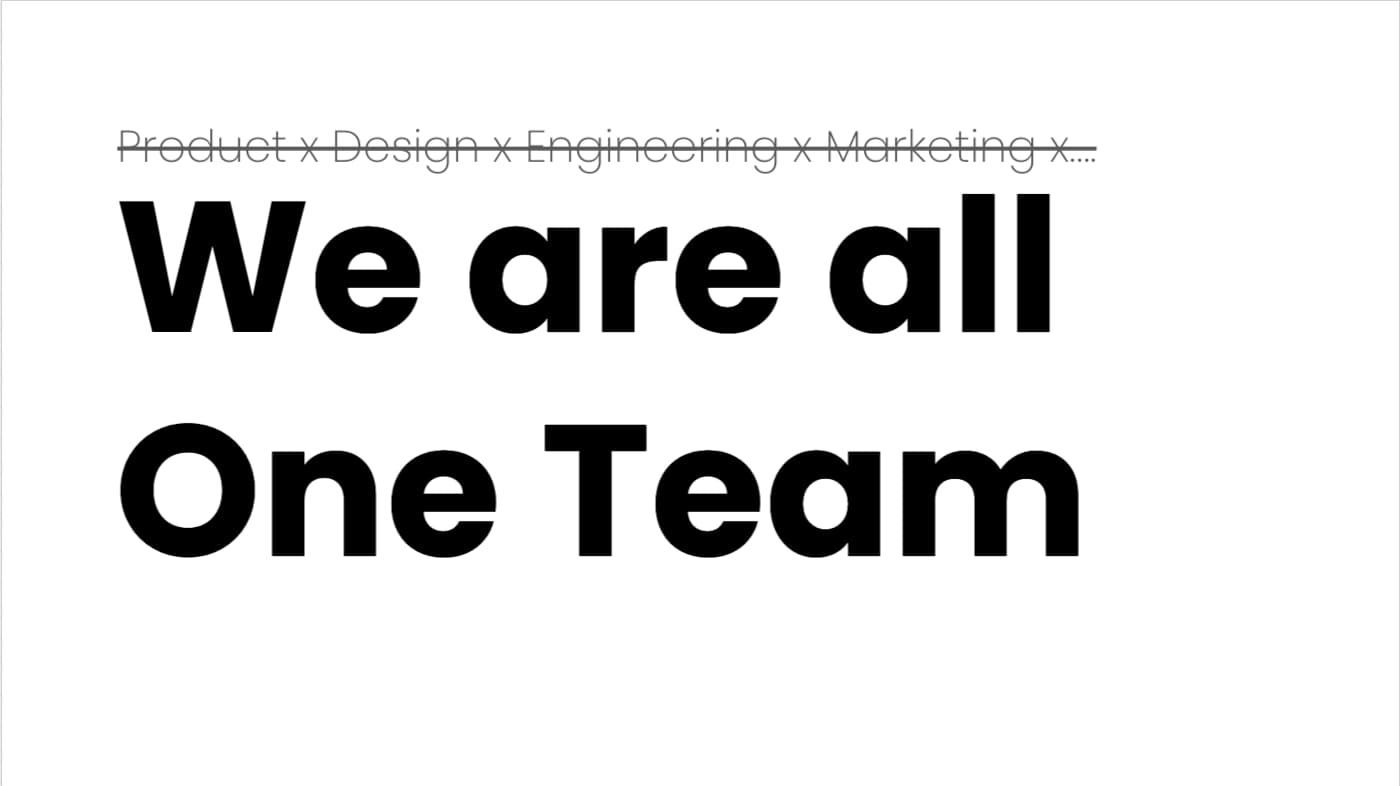An Unspoken Rule of Highly Effective Product Teams
Before we go on, look back in the past six months and answer these two questions for yourself:
- "Do I feel that I participated in a relevant way and that my team's Strategy considered and represented my views?"
- "Do I feel that, during this time, the team worked primarily on the things that are most important to where we want to go?"
If you answered no to both these questions, you might be thinking something in the lines of:
- "There's no way I could have impacted the strategy."
- "You just don't understand the Product Manager and team I work with."
- "You have no idea how hard it is to get stuff done and approved here."
If you thought that, I'd be thrilled to help you understand why that will lead you and your team into mediocrity, resentment, and failure.
I know you have a million things to do. I understand that people are complicated. I know about office politics. I know it feels safer to do what we do best and let everyone else sink or swim on their own. I get it. And it doesn't matter. That boat that is sinking is our boat too.
When we work in autonomous Product teams, that autonomy comes with a price: Responsibility. We're the owners of that focus in our company. If it fails, we fail. "To have any shot at success today, with the relentless push to transform, innovate, and reinvent, we have to climb out of the bunker and reach out to the people who make up our teams. And when we find them, we have to do the work together: get to know them, work collaboratively; furnish genuine feedback; and offer guidance–and stay open to receiving all of the above from our teammates in return." Keith Ferrazzi says in his book Leading Without Authority.
A team in which everyone is deeply invested in making each other successful is a team that will thrive. When you work that way, you achieve more remarkable results, create more meaningful relationships, and have a greater sense of joy at work. The most important step in that direction is shifting from passivity, resentment, and resignation to an unwavering determination to make your team awesome. If your mission is important to you and you want to build relevant things, you can't wait for people to come to you. You can't expect people to read your mind. You need to reach out to them and do the work together. Have the Backbone to show up.
Have Backbone; Disagree and Commit
This Leadership principle from Amazon was the one that stuck with me the most. True leaders own everything key to their success. Failing to speak up is an abdication of your responsibility. Nodding along with a strategy you disagree with and secretly hoping for it to fail is a clear sign your ego is more important to you than your results.
Having Backbone doesn't mean being inflexible, shutting yourself off to others' opinions, or lashing out at people who disagree with you. Dr. Brené Brown calls this behavior having a weak spine and a shielded front: "All too often, our so-called strength comes from fear, not love; instead of having a strong back, many of us have a defended front shielding a weak spine. In other words, we walk around brittle and defensive, trying to conceal our lack of confidence. If we strengthen our backs, metaphorically speaking, and develop a spine that's flexible but sturdy, then we can risk having a front that's soft and open ... For me, that strong back is grounded confidence and boundaries. The soft front is staying vulnerable and curious. The mark of a wild heart is living out these paradoxes in our lives and not giving into the either/or BS that reduces us. It's showing up in our vulnerability and our courage, and, above all else, being both fierce and kind."
Having Backbone does mean doing the work, engaging the right people and disagreeing until you're able to commit fully. It means taking the professional risk and leaving your shame, fear, and ego off the table. It's only valuable if it comes with a relentless desire to get to the best answer. Showing our opinions and thoughts makes us vulnerable. It's also the only courageous way to lead. It comes from Extreme Ownership.
The Unspoken Rule
When we know others won't let us fail, we can take risks and challenge one another. When we know everyone in the team is Disagreeing and Committing, we clear the bullshit and leave space for trust. Trust in each other, and that everyone in our team is committed to the mission. When we own everything in our world, there's no one else to blame. We take action and make each other better. We do whatever it takes to create value for our teams and our organization, even if people don't expect that from us and even if it goes beyond our job descriptions. That's why Extreme Ownership is an unspoken rule of Effective Product Teams. Not on one person, but on the whole team. Everyone in the team has and trusts that others have backbone and are fully committed to the mission.
So stop saying that's not your job, stop complaining after the fact. Take ownership. In the end, we sink, or we rise together. We're one team, one company.

I've written in the past about the Role of Engineering in Strategy with actionable advice on the best ways Engineers can contribute. If you're from another function–Design, Marketing, Operations, Sales, etc.)– I would love to hear your take on your role in Product Strategy and feature it here in the newsletter in the future, send me a DM on Twitter or LinkedIn, or answer this Survey and I'll make sure to feature it 😊